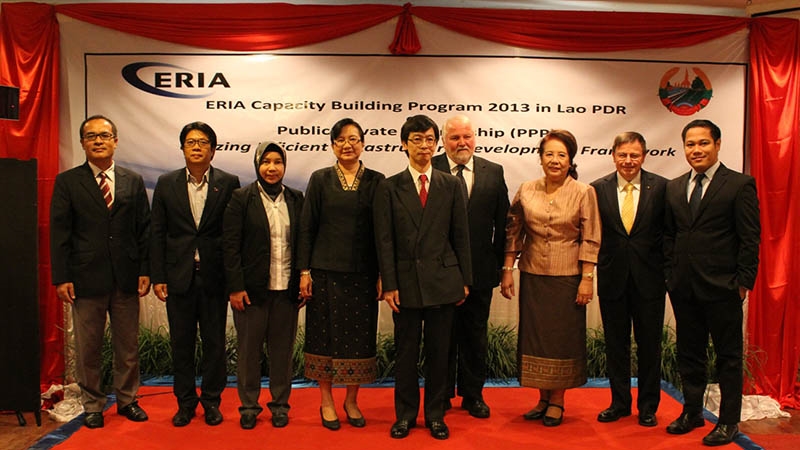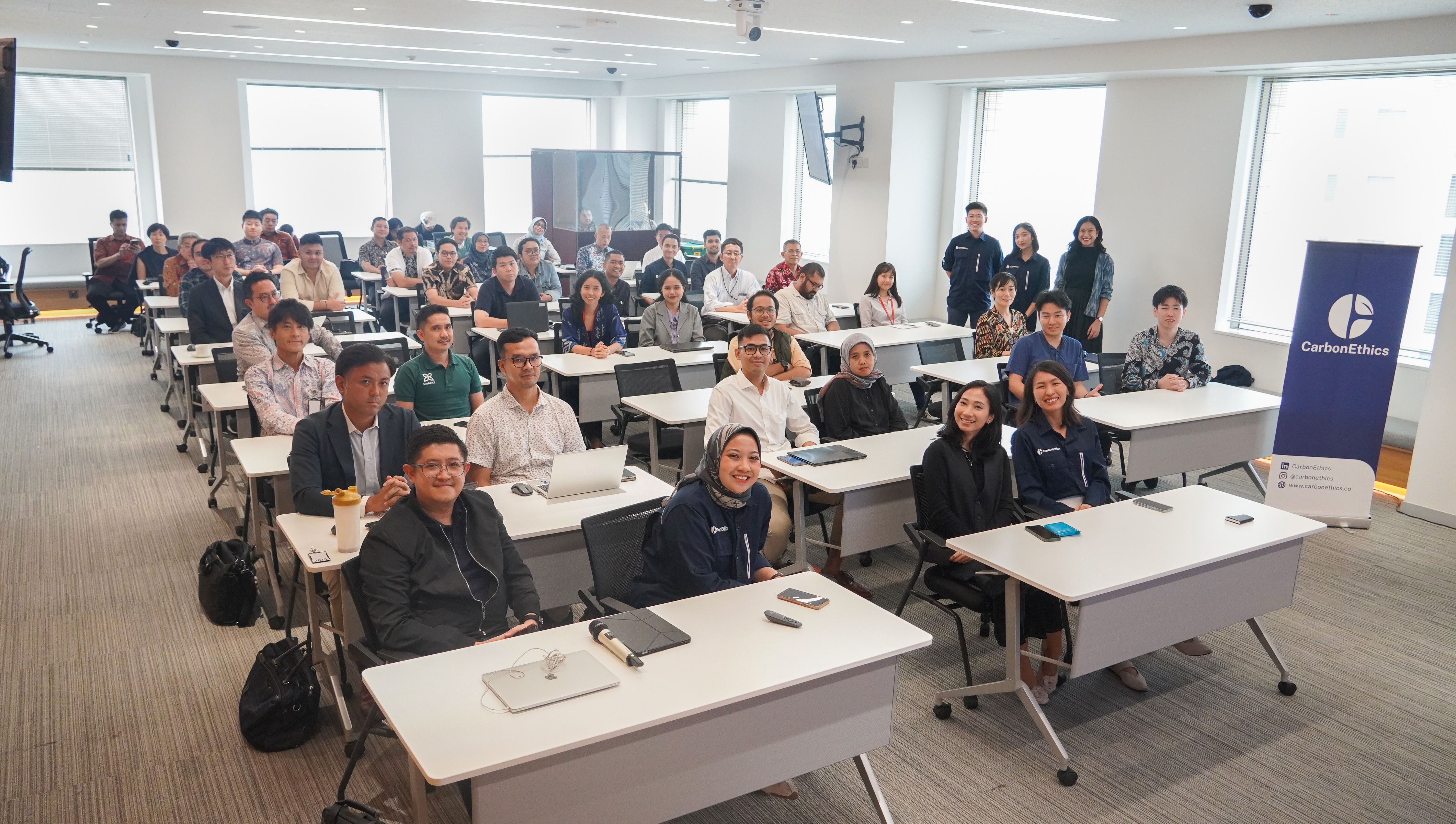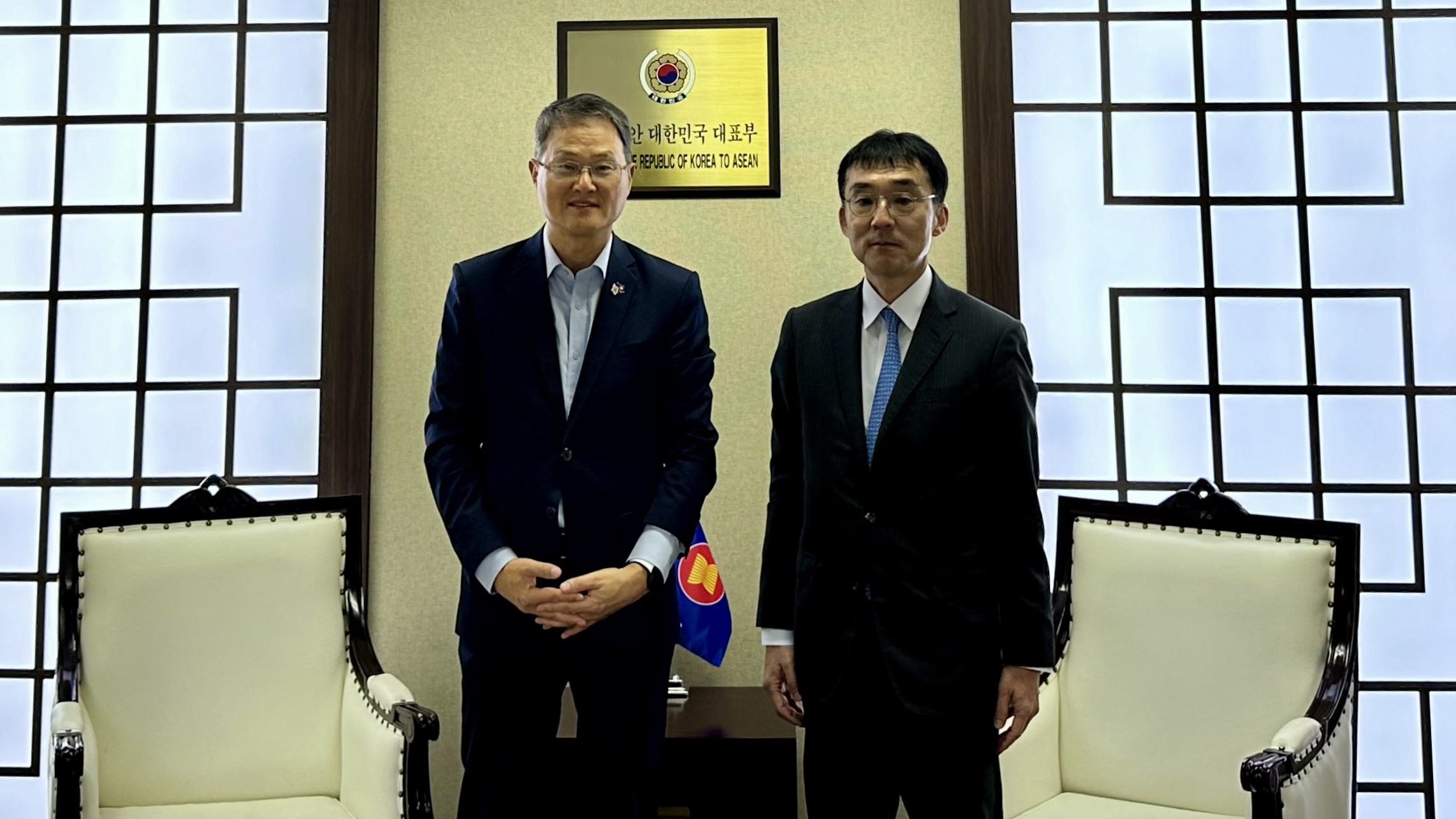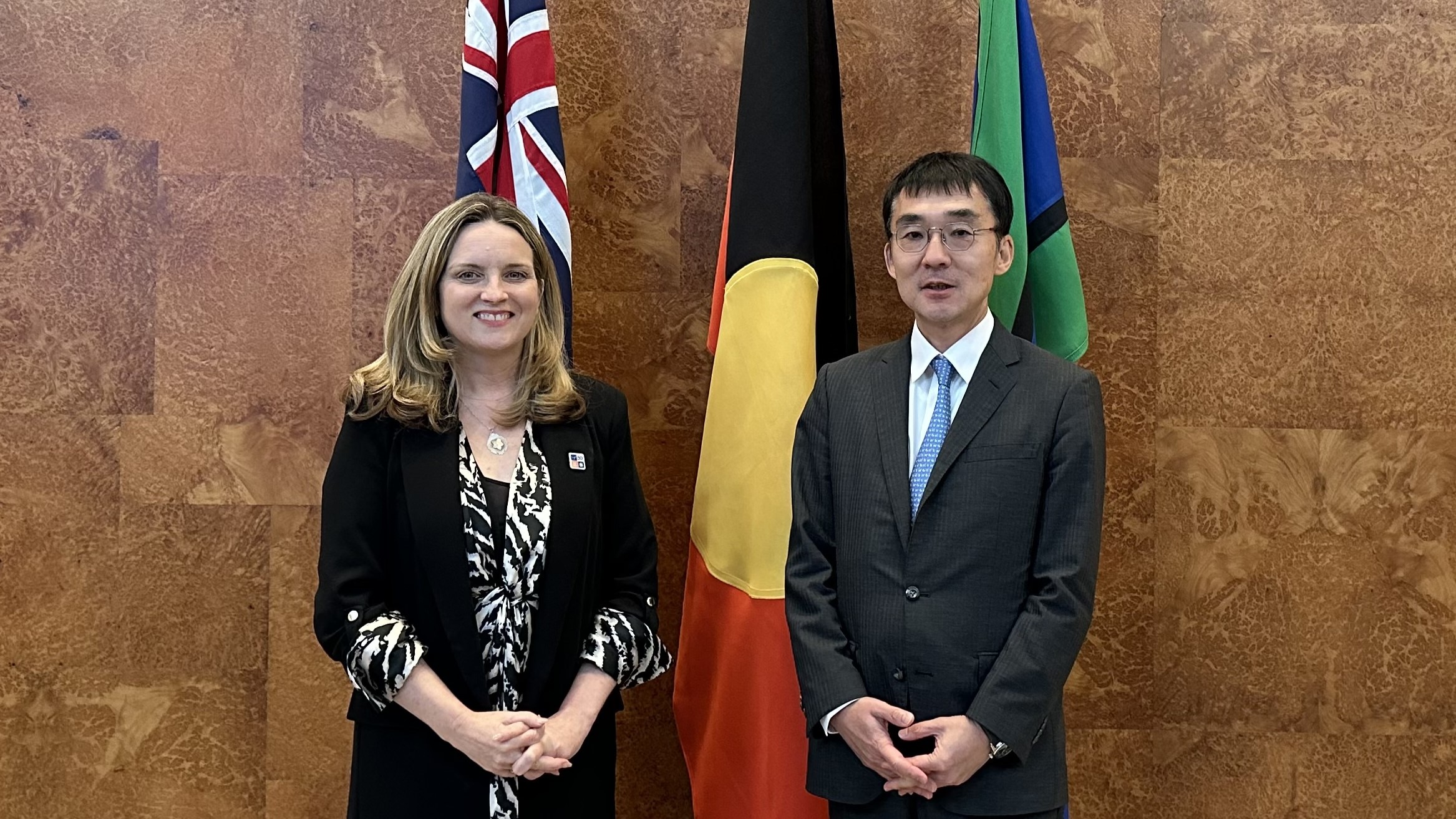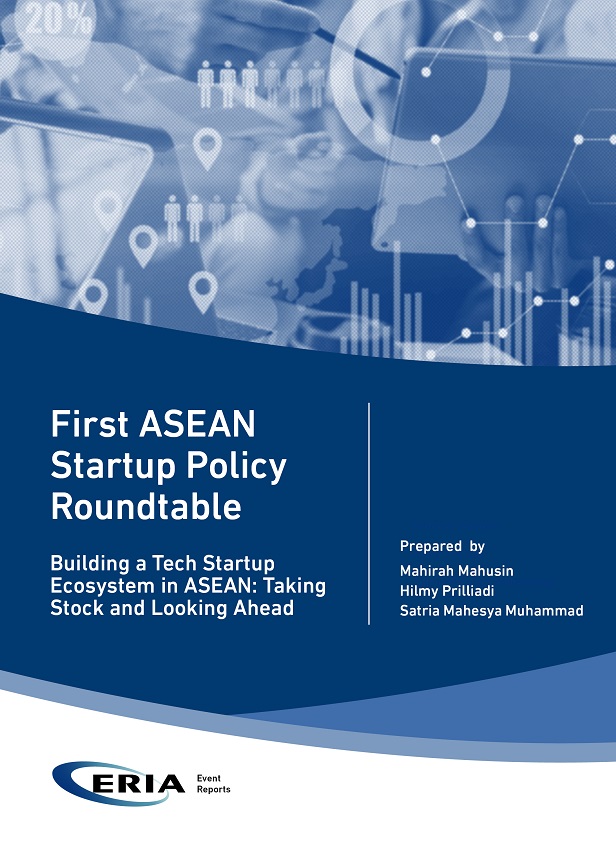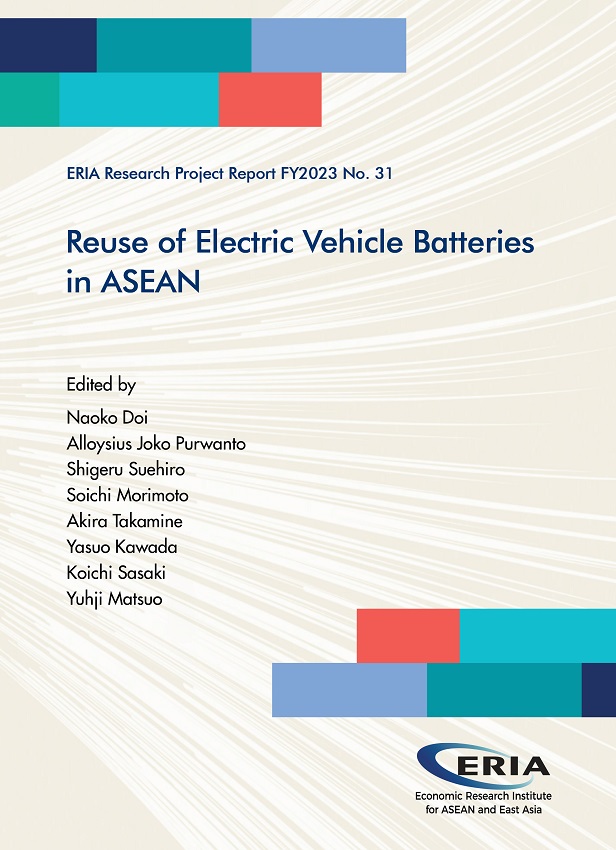Lao PDR Increases Interests in Efficient Infrastructure Development Framework
Date:
1 July 2013Category:
News, Press ReleasesShare Article:
Print Article:
Vientiane, Lao PDR, July 01, 2013 - The Economic Research Institute for ASEAN and East Asia (ERIA) has initiated a series of capacity building program on the issue of Public Private Partnership (PPP) for CLM (Cambodia, Lao PDR, Myanmar) countries.
ERIA organized the first one day capacity building seminar on PPP "Utilizing Efficient Infrastructure Development Framework" in Vientiane, Lao PDR, in close collaboration with Ministry of Industry and Commerce (MOIC), Lao PDR. ERIA launched the program as a capacity building activity and took this opportunity to disseminate the research results and recommendations from its project on PPP.
H.E. Khemmani Pholsena, Vice Minister of Industry and Commerce delivered her remarks in the opening session. "PPP is an important mechanism to increase the cooperation and participation of private sector into the infrastructure development of Lao PDR. The public sector should develop and improve rules and regulations in order to encourage more private sectors' interests to invest in the Government's development projects", she reiterated. She also highlighted the importance of this seminar to increase the understanding of PPP schemes and the fruitful experiences from Australia and lessons from five ASEAN countries.
A joint-opening remarks was delivered by Mr. Satoshi Kuwahara, Special Senior Advisor, ERIA. In his remarks, he pointed out that "The demand for infrastructure has exceeded the rate of its development. Private sector is a potential source to boost infrastructure development."
After the opening session, the seminar had five presentations, starting with Mr. Daniel J. Graham who presented his thoughts on "What is PPP? Why is PPP framework necessary? "He shared the concept of PPP and Australia's experience on PPP framework and the necessity of having PPP in place as well as the PPP institutional and legal framework.
The second presentation was "Trends and Overview of PPP Framework in ASEAN:Lessons from ASEAN Five Countries", presented by Dr. Fauziah Zen, Researcher, ERIA, Indonesia. She explained the ASEAN countries' different stages of infrastructure policy, financing method, and financial capacity and introduced lessons from other countries.
The third session was presented by Prof. Michael E. Regan, Professor of Infrastructure, Institute of Sustainable Development and Architecture, Bond University, Australia, entitled "Towards PPP Implementation in Lao PDR: ERIA PPP Research Works". He made some important suggestion for Lao PDR on developing the PPP framework, for instance, to establish good foundations and adopt a staged approach to introduction of PPP policy (3 or 5 years) and to build on the BOT experience within government.
The fourth session was "Lao Stakeholders' Views towards PPP Framework in Infrastructure Projects" presented by Dr. Saykham Voladeth, National Economic Research Institute (NERI), Lao PDR. He informed that PPP in Lao PDR is not new, but unsystematic. There is no specific PPP law; however, there are some elements of PPP in many laws such as Enterprise Law, Investment Law, Public Investment Law, Regulation on Bidding, Anti-corruption law, Decree on Completion, etc. Some ministries were in the process of setting up the PPP in house; however, the understanding was not clear what it is and how it works.
The fifth presentation was "What Should Government Do for PPP Projects?" presented by Mr. Eleazar E. Ricote, Director IV, Public-Private Partnership (PPP) Center, Philippines. He mentioned that 10 to 15 years ago, PPP in the Philippines was like Laos' current situation. The Philippines started from formalizing private sector role as development partner and to define PPP options e.g. nature, scope and extent of private sector engagement.
Additionally, institutional arrangements were set up with clearly delineated mandate or authorities as well as policy framework by developing laws and regulations governing the PPP framework.
The concluding remark was delivered by Mr. Saysana Sayakone, Deputy Director of Foreign Trade Policy Department. He emphasized the importance of PPP framework as public and private cooperation in term of bridging financial gap for the infrastructure development. "Towards joining AEC in next two years, it was very critical time for Lao PDR to enhance and develop infrastructure for achieving the Master Plan on ASEAN Connectivity. PPP was crucial to develop and enhance in Lao PDR in terms of institutionalization as well as policy framework."
The series of the capacity building program on PPP will take place in Phnom Penh, Cambodia on 4 July, 2013 and in Naypyitaw, Myanmar on 24 July, 2013.
To download Press Release, please click on the following link:
Lao PDR Increases Interests in Efficient Infrastructure Development Framework
